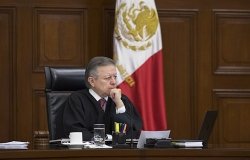Will Museum Terrorist Attack Derail Tunisia’s Transition to Democracy?
"The only thing that’s certain now is that if the Western world and Persian Gulf states do not help Tunisia tackle its unemployment and the sociological malaise of the younger generation, things there will grow worse before there is any hope of improvement," writes Haleh Esfandiari and Jason Brodsky.
A terrorist attack at a museum in Tunisia’s capital on Wednesday killed 20 people, 18 of them foreign tourists, and sent shockwaves worldwide. Tunisia is the birthplace of the Arab Spring. It became the symbol of what the revolutions in other Arab countries could have become–and the envy of people in Egypt, Libya, Syria, and Yemen.
Tunisia made a peaceful transition from autocracy. It held democratic elections that resulted in a peaceful transfer of power from the Islamist Ennahda Party to the secular Nida Tunis Party. A new constitution guaranteed the rights of all citizens, regardless of religion, ethnicity, or gender. The outside world saw Tunisia as an island of stability and success. With revolutionary turmoil ended, tourists were returning and foreign investment was trickling in. The future looked promising. But it’s clear now that something was not right.
Two months ago, when one of us (Haleh) visited Tunis, security at the airport in the country’s capital was surprisingly lax. A female immigration officer spoke on her cellphone while she stamped the passports of arriving passengers. At least two women in full Islamic dress passed by this officer without being asked to raise their face covering, or neghab, so that their identity could be verified. The atmosphere was relaxed in Tunis, on the streets, in a mosque and even in the supreme court building. One Tunisian, not bothered by the absence of visible security on streets and in public buildings, said: “We don’t need it. We are leaving the salafists and the jihadists behind us; we are gradually feeling secure.”
Wednesday’s attack changes everything. Already, people are wondering why the government was not more vigilant and why their country has become a recruiting ground for Islamic State and other extremist groups. Government and private estimates are that as many as 3,000 Tunisians have flocked to the battlegrounds of Iraq and Syria. The same studies indicate that Tunisia outranks Saudi Arabia and Jordan in producing foreign fighters–and that doesn’t include the 9,000 that the interior minister said last fall the Tunisian government had thwarted from traveling to Syria. According to SITE Intelligence Group, which follows extremist and jihadi organizations, ISIS-linked Twitter accounts are putting out “calls for Tunisians to ‘follow their brothers.’ ” A segment of Tunisia’s population is ready to heed the call.
Libya, with its two competing governments, has become a destination for many Tunisians who would be terrorists. It is much easier for radicalized Tunisians to cross the border into Libya than trekking all the way to Iraq or Syria. This week alone, Ahmed Rouissi, a Tunisian who was a senior ISIS commander in Libya, was killed in fighting near Sirte, and Tunisian authorities broke up a terrorist network whose recruits were bound for Libya.
Most recruits are younger than 30, are they are attracted to the mantra of jihad for more than ideological reasons. James Clapper, the U.S. director of national intelligence, warned in the 2015 Worldwide Threat Assessment that Tunisia, with “one of the highest youth unemployment rates in the world,” will continue to “struggle to meet public expectations.”
Combine poverty and unemployment with this steady pool of disaffected jihadi-sympathizers, and a dark, deadly storm is brewing. The only thing that’s certain now is that if the Western world and Persian Gulf states do not help Tunisia tackle its unemployment and the sociological malaise of the younger generation, things there will grow worse before there is any hope of improvement. Looked at another way: The world should not allow the one success story of the Arab Spring to die.
The opinions expressed here are solely those of the authors.
This article was originally published in The Wall Street Journal’s Washington Wire.
About the Authors

Middle East Program
The Wilson Center’s Middle East Program serves as a crucial resource for the policymaking community and beyond, providing analyses and research that helps inform US foreign policymaking, stimulates public debate, and expands knowledge about issues in the wider Middle East and North Africa (MENA) region. Read more











